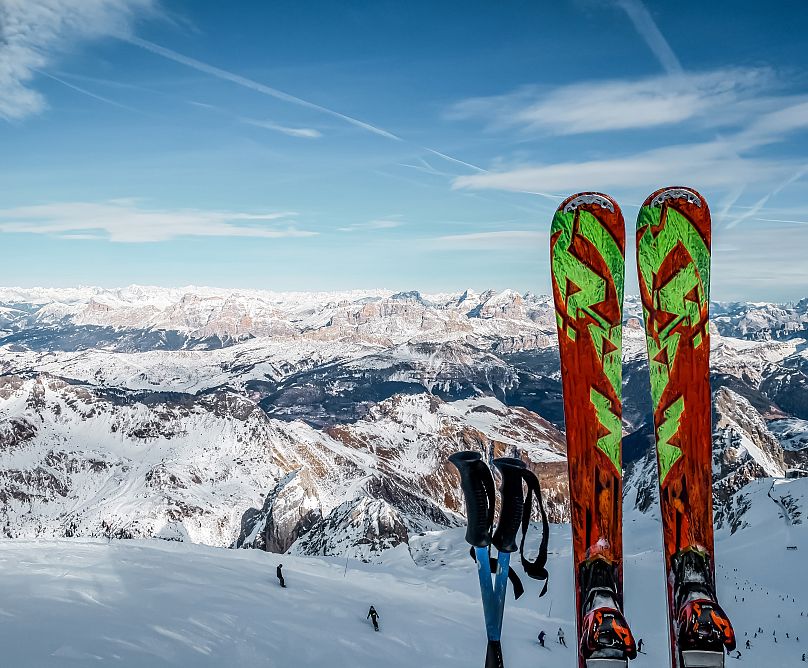Ski passes are more expensive across Europe this season, but there are ways you can save money.
If you’re planning on hitting the slopes this winter, be prepared to pay a little more for your trip.
 ADVERTISEMENT
ADVERTISEMENT
 ADVERTISEMENT
ADVERTISEMENT
Ski resorts across Europe are struggling with spiking costs amid the energy crisis.
Faced with soaring electricity bills, mountain resorts are upping prices for ski passes, lodging, restaurants and other services.
Some centres have been forced to restrict opening hours and keep slopes closed.
Here’s what ski resort prices look like for the winter season.
Will skiing holidays be more expensive this season?
With a Europe-wide energy crisis causing bills to skyrocket, ski resorts say prices have had to go up.
Ski centres use vast quantities of electricity to power snow cannons, ski lifts and mountain bars.
Some resorts have an energy consumption that is equivalent to up to 40,000 households per year, according to a Telegraph report.
As spiking energy costs hit the slopes, resorts have increased prices for lift passes and other services.
Italy’s ski resorts introduce highest hike in prices
Mountain resorts in northern Italy have increased prices the most in order to offset energy costs.
The prices of daily, multi-day and season passes have risen between 6 per cent and 13 per cent, news outlet SkyTG24 reports.
The resorts of Bormio and Livigno in the northwestern Lombardy region have the highest increase in prices. In Bormio, a day pass has risen from €46 last season to €52 this year, while in Livigno it has gone from €52 to €59.
The Dolomiti Superski day pass, which allows skiers access to 12 different resorts dotted across the mountain range, will set you back €74 in high season, compared to €67 last year.
Hotels and restaurants have also upped prices across the board to cover increased heating and light bills.
Austria’s Alps reduce opening hours and stop night skiing
In Austria, some ski centres expect their power costs to double this season.
Many low priced energy contracts expire at the end of this year and resorts fear huge price leaps in 2023.
Popular resorts have had to increase ticket costs to cope with soaring bills. But they are also opting to shorten opening hours or close slopes altogether to reduce their energy consumption.
Some are timing artificial snow spreading to coincide with the coldest temperatures. Resorts are also reducing capacity on ski lifts and slowing them down.
Night skiing has also been suspended in some resorts to cut costs from floodlighting and lifts.
Switzerland’s slopes are expensive but keep inflation low
Switzerland’s ski passes generally cost a little more than neighbouring European countries.
But they’ve also tried to keep price increases as low as possible. The famed resort of St Moritz hasn’t raised prices at all this season.
On average, ski centres have upped lift passes by around 5 per cent.
Zermatt has increased day passes from CHF79 (€80) to CHF83 (€85) while Verbier has raised prices by 3.9 per cent to CHF80 (€81.40).
How to save money on a skiing holiday this year
With lift passes and hotel prices on the rise this year, cost cutting will have to come in other forms.
Ski resort Morzine in the French Alps is offering a way to save money and reduce your impact on the environment.
Skiers who travel to the mountain resort on the Alpin Express train will receive discounts on ski passes, equipment hire, accommodation and eating out.
To participate in the initiative, travellers need to email Montagne Verte, a non-profit organisation founded by the community of Morzine.
After sending a copy of your train ticket and information, you will receive a QR code that gives you access to a variety of discounts including 10 per cent off the price of lift passes.
You can also save money on accommodation at Morzine. Chalet company AliKats has been updating its lodging with a new sustainability strategy.
The 12 chalets are powered by 100 per cent renewable energy and guests are provided with electric vehicles to get around the resort.
Eco-friendly guests will receive 20 per cent off their accomodation cost if they opt in to AliKats sustainability initiative.
Participants need to arrive at the resort by train, not use hot tubs and eat a plant-based diet during their stay in order to qualify for the discount.











